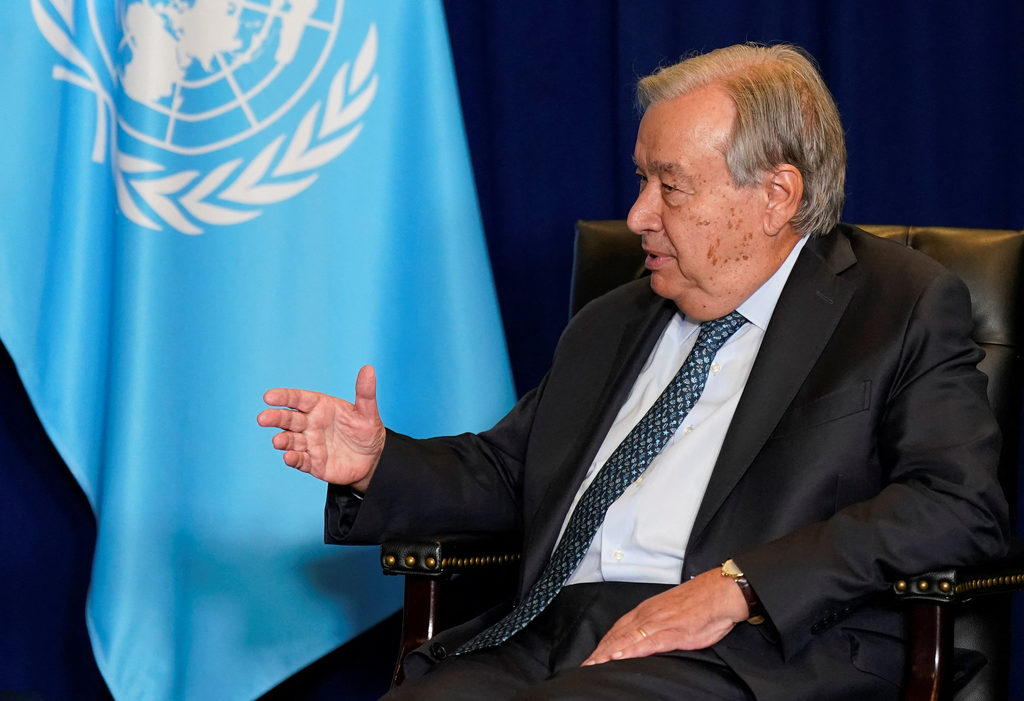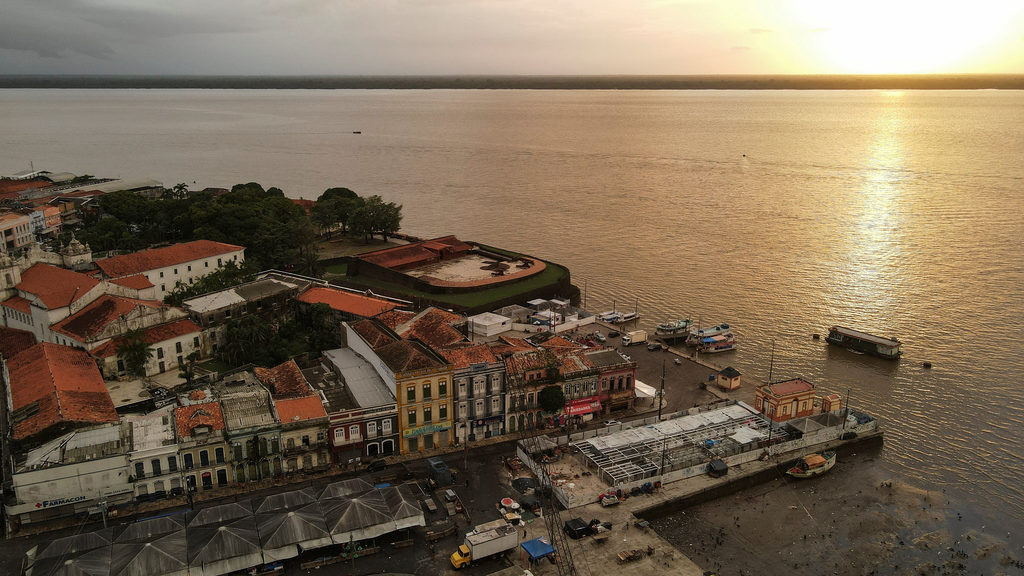As world leaders gather in Brazil for COP30, Pacific nations are turning attention to their own homegrown response to the climate crisis — the Pacific Resilience Facility (PRF).
In Parliament last week, Minister for Environment and Climate Change Mosese Bulitavu said the PRF was born out of years of frustration with complex global financing systems that left Pacific communities waiting for funds while the tides rose and disasters worsened.
“The Pacific Resilience Facility was established by Pacific leaders to build a resilience of communities to the impact of climate change and disaster events,” he told Parliament.
“The PRF is the region’s first Pacific-led, member-owned and managed regional financing facility and the first of its kind.”
The timing of his update was deliberate. With COP30 now underway, where developing nations are again pressing for fairer access to climate funds, Fiji’s remarks resonated with a sense of regional self-determination.
“For decades, we have struggled with the procedures and requirements that have hampered our ability to access global finance,” Mr Bulitavu said.
“The finance we have accessed is often managed by third parties, fragmented and ill-equipped to provide direct support to communities.”
He said international funding systems were still bound by standards and safeguards that “continue to complicate and even prevent our efforts to directly fund community-based projects”.
“The PRF is the Pacific’s homegrown financial innovation in action.
“It seeks to enhance tangible interventions to increase our resilience to the climate emergency.”
From vision to action
The PRF, first conceived in 2017, aims to raise $US500million by 2026 and reach a total capitalisation of $US1.5billion by 2030.
To date, it has received pledges amounting to $US167m from international partners and Pacific Islands Forum members.
The fund will provide grants, not loans, ensuring that vulnerable communities are not burdened with additional debt.
“The PRF will provide simplified access to finance and not contribute to the overboarding of debt,” Mr Bulitavu said.
He explained that the facility was revived and redesigned in the wake of COVID-19, with a stronger emphasis on direct community access and streamlined application processes.
In August 2024, Pacific leaders decided to domicile the new institution in the Kingdom of Tonga, marking an important step toward full operationalisation.
“A legal drafting group was established to draw up an international treaty establishing this new institution,” Mr Bulitavu said.
“Earlier this year at the Pacific Islands Forum Leaders Meeting in Honiara, the honourable Prime Minister, along with other leaders, signed the treaty establishing the PRF, and member countries now have begun the process of ratification.”
Fiji’s Ministry of Foreign Affairs and the Solicitor-General’s Office are preparing the ratification document.
Raising awareness on the global stage
Mr Bulitavu said high-level events at the United Nations General Assembly and the World Bank annual meetings have been used to promote the PRF and secure additional support.
“At COP30 in Brazil, we will continue to work as a region to build support and awareness to this initiative,” he said.
While international advocacy and fundraising remain crucial, he stressed that the technical design, governance structures, policies and fund procedures must be carefully built to reflect Pacific realities.
“The unique needs and challenges of the Pacific Island countries will not be met if we depend on the blueprints and models of international organisations and funds that are not orientated and designed around a clear understanding of our context and needs,” he said.
Mr Bulitavu said Pacific governments are working to “design national and regional funds and funding mechanisms from the bottom up”.
He said the region must reduce reliance on external financial models that often overlook Pacific contexts.
“We increasingly recognise the importance of defining the financial architecture around us and the risk involved with relying too heavily on external financial models to shape our future,” he said.
Governance and accountability
Opposition member Faiyaz Koya sought clarity on how the fund would be governed, noting that it was “owned by our own”.
“Honourable minister, can you briefly explain to us how the Resilience Facility will be governed because it is owned by our own? How will it be governed?” he asked.
Mr Bulitavu said the Pacific Islands Forum Secretariat (PIFS) currently oversees the facility.
“It is governed through the Pacific Islands Forum Secretariat. They are the ones that are managing it and are currently managing the fund and those that will be depositing or pledging into this,” he said.
“So far, a total of $167m from 13 capital investors have deposited a pledge including the Pacific Island countries such as Nauru and Solomon Islands and other international partners.
“It is managed by PIFS.”
Direct benefits for communities
Opposition MP Rinesh Sharma congratulated the minister for being “labelled the climate champion of Fiji” before asking how the PRF would benefit individual Pacific Island countries.
“Honourable minister, can you highlight how many Pacific Island nations would be able to benefit from this facility? Is there any particular key area in Fiji that we are looking into which is a locally-owned initiative that is sustainable and resilient?”
Mr Bulitavu said the PRF was designed to benefit all Pacific nations, including Fiji, through direct access to predictable grants.
“It just started,” he said.
“We are still moving around to get pledges from the Pacific Island countries and also the international communities and partners.”
He said Fiji’s benefit would come through projects that strengthen local climate resilience.
“Fiji will have direct access to predictable community grants and can align its project pipeline,” he said.
“Climate resilience measures, relocation and rural electrification — these are some of the areas that will be covered through this PRF funding window.”
Looking ahead
The first call for proposals for community projects is expected to open at the 55th Pacific Islands Leaders Forum Meeting in Palau in August 2026, with the first grants to be distributed in early 2027.
Mr Bulitavu said it was critical to “get that design right” before the rollout begins.
“We continue to work closely with the Pacific neighbours and regional organisations to ensure PRF can deliver effectively,” he said.
“We expect the first call for proposal for community projects to be launched at the 55th Pacific Islands Leaders Forum Meeting convened in Palau in August 2026, with the granting to commence in early 2027.”
He said the PRF represented more than just another funding mechanism, it was a step toward financial independence for Pacific nations confronting climate threats that they did little to cause.
“It is critical to ensure that the Pacific Resilience Facility establishes itself as a fundamental and long-term part of a collective resilience-building effort,” he said.
Regional momentum at COP30
As discussions unfold in Brazil, the PRF will serve as a Pacific example of what regional cooperation can achieve.
While larger nations debate emissions targets and climate finance mechanisms, Pacific leaders are demonstrating a parallel approach, building their own solutions and setting their own priorities.
For Fiji, the message is clear: adaptation cannot wait for bureaucracy.
The Pacific Resilience Facility, still in its early stages, may yet become a cornerstone of that vision — a symbol of the region’s collective will to stand firm against rising seas, mounting disasters and the slow erosion of livelihoods.
As Mr Bulitavu told Parliament, “The PRF is the Pacific’s homegrown financial innovation in action.”
And for small island nations whose existence depends on resilience, innovation may now be the only way forward.
Britain’s Prince William (left) and United Nations Secretary-General Antonio Guterres (right) will be among the world leaders at COP30 in Brazil. Picture: REUTERS

United Nations Secretary-General Antonio Guterres gestures as he meets with U.S. President Donald Trump (not pictured) during the 80th United Nations General Assembly, in New York City, New York, U.S., September 23, 2025. REUTERS/Al Drago



